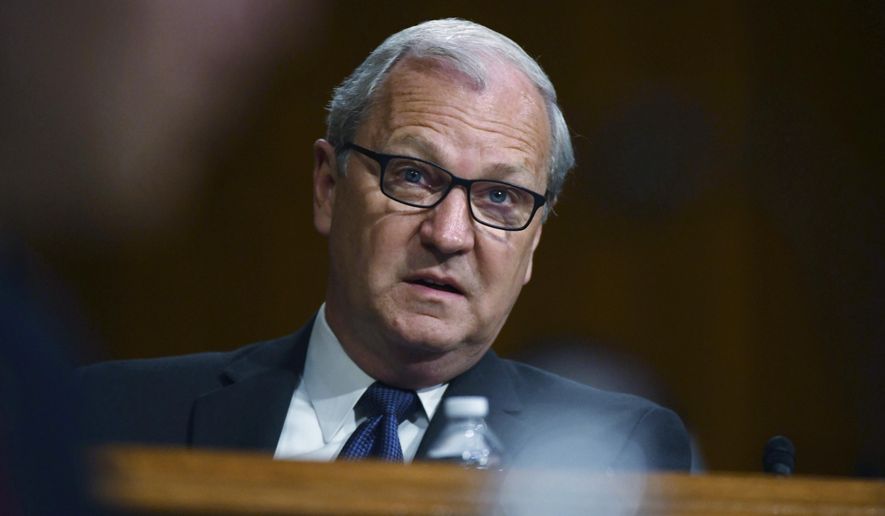OPINION:
Washington suffers from a lot of pathologies, but the most annoying has to be the chronic inability of federal government officials to give a straight answer to a simple question.
It may be that the town is full of lawyers, who, in the words of St. Thomas More, are men whose profession it is to disguise matters. It may be that every high school debate team letterman across the fruited plains winds up in town.
Whatever the cause, it sometimes makes it difficult to take some people seriously.
An example might be helpful. This past week, a former senior official in the Trump administration tweeted out that Sen. Kevin Cramer’s new legislation that would set us on a path toward a national tax on energy in all its forms — was a “great bill.”
When this columnist made the mistake of engaging on Twitter and pointing out that the North Dakota Republican’s legislation would lay the foundation for a regressive, economy-shattering energy tax, the former Trump official responded: “Kevin Cramer is leading on this. He’s opposed to everything you describe.”
Let’s think about that nonanswer for a second. In no way does it respond to or address any of the specific concerns about the legislation. It essentially says, “hey, you can trust Sen. Cramer.”
That’s probably not good enough for most, nor should it be.
As noted previously, the legislation would require the Biden administration to determine the amount of energy used and carbon dioxide emitted by various countries in the production of everything that makes modern life possible (aluminum, iron, steel, plastic, crude oil, etc.).
That determination would be used to impose tariffs on those countries who — in the view of the Biden administration — emit too much carbon dioxide while creating those products.
Before such tariffs could be imposed, however, the federal government would need to set an explicit price for carbon dioxide in these United States. It is the only way the whole scheme can comply with our trade obligations.
That means the imposition of a nationwide tax on carbon dioxide, which is really, of course, a tax on energy. This is not particularly complicated. Whatever one calls it — a tax, a tariff, an adjustment — it will mean higher prices on everything that energy touches, which means everything.
Such a tax will damage families, small businesses, older people, the poor, those on fixed incomes, the economy in general, and local schools and hospitals.
The Washington Times correctly made those points in an editorial a few weeks ago. In response, Mr. Cramer offered an opinion piece that talked all about trade policy but did not address the main question raised in the editorial — whether the legislation was a stalking horse for a national energy tax.
This columnist followed that exchange with an essay that again correctly identified the proposed legislation as the first step toward a destructive national energy tax.
Mr. Cramer and his allies offered no response to that column. To date, the assertions in both the editorial and the column remain unaddressed. Instead, we have been treated to tweets about how the legislation is great and we should stop asking questions.
If you can’t give a straight answer to a simple question, and if you can’t address a simple assertion, rational people are going to assume that there is no answer, at least none that you are willing to share in public.
Mr. Cramer and his allies are wise to hide the ball on this issue. They know that Americans will overwhelmingly reject a national energy tax, which is why not even the Biden administration has proposed one.
A colleague has suggested that perhaps those who oppose the legislation should start to call it simply “Cramer’s energy tax.”
That has a certain ring to it, and perhaps that is what it will take for someone, anyone in Mr. Cramer’s camp, to address the real problems associated with this legislation.
• Michael McKenna, a columnist for The Washington Times, is president of MWR Strategies. He was most recently a deputy assistant to the president and deputy director of the Office of Legislative Affairs at the White House. He can be reached at mike@mwrstrat.com.




Please read our comment policy before commenting.